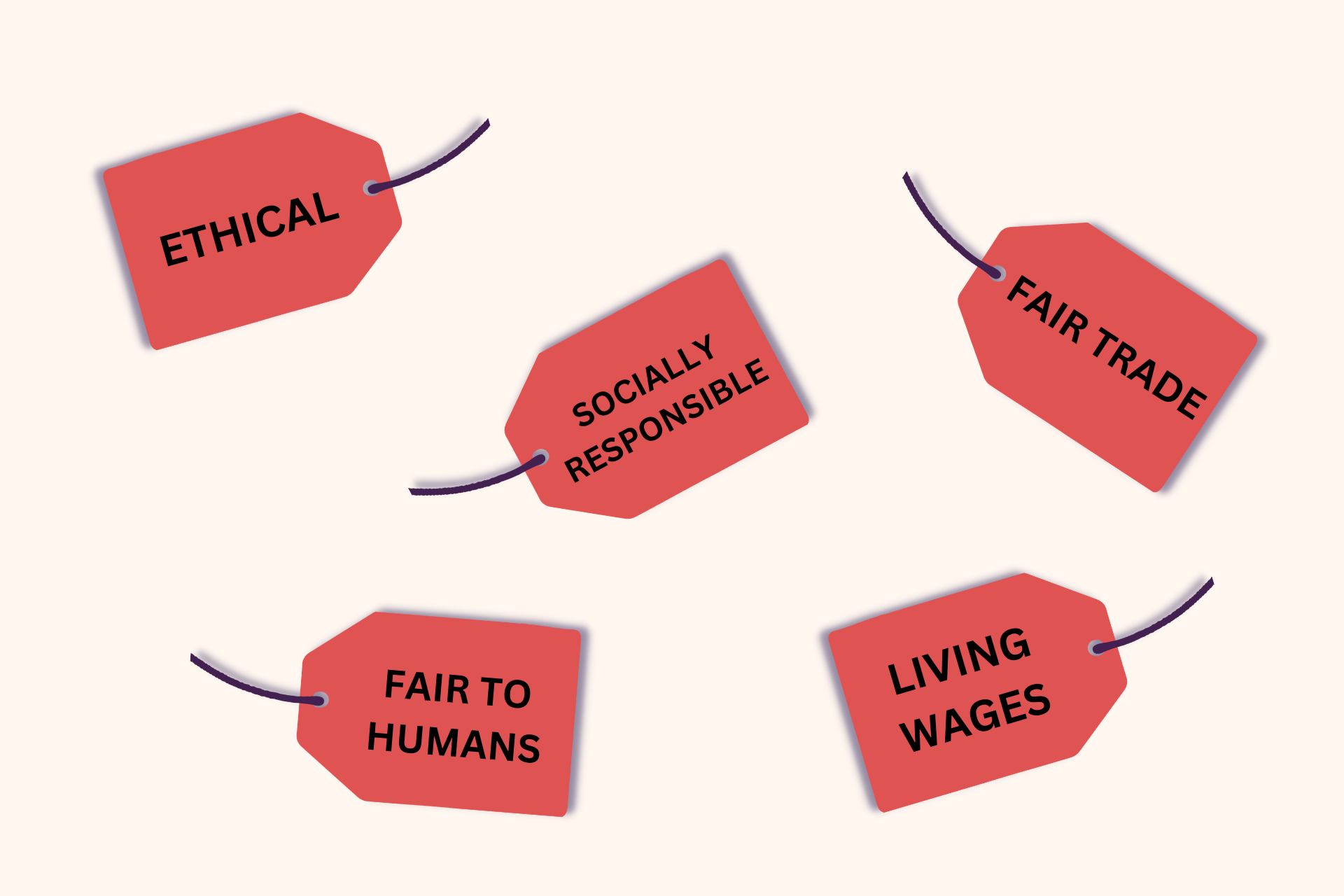Here’s a roundup of some of the finest sustainable fashion stories that hit the news in January…
Charity Super.Mkt
We’ve previously touched on how the cost of living crisis could lead to more affordable sustainable fashion. While new sustainable fashion brands aren’t usually at the affordable end of the spectrum, used clothes can be via the resale segment. This is where someone who has bought an item of clothing can sell it on to another buyer via an app such as Depop or Vinted. With our modern-day preoccupation with all things digital, it can be easy to forget that there are brick-and-mortar shops too selling used clothes, such as charity shops!
So why are we telling you about charity shops? Well, in London’s Brent Cross Shopping Centre, a multi-charity store has opened up selling donated clothing. The clothing has been provided by charities such as Barnardo's, Cancer Research, Age UK, All Aboard, Emmaus, Havens Hospice, SCT, Marie Curie, TRAID and Shelter. The pop-up store is staffed by volunteers and will be open for a month.
Interesting to read that one of the motivations for this joint-working was the belief that second-hand fashion is being "hijacked" by bigger companies to appeal to socially conscious shoppers.
Sustainable Polyester?!
We’re always interested in hearing about the latest innovations in textile sustainability. Sometimes we catch ourselves wondering: which fruit hasn’t been turned into fabric yet? Hmmm…
One fabric we hadn’t ever imagined could be made sustainable is polyester but it turns out that it can be done. A Paris-based sustainable chemicals company called Fairbrics has been doing just that and they’ve raised €22m in funding!
The approach is ingenious. Fairbrics has developed technology that converts CO2 emissions into high-value polyester through a circular manufacturing approach. The company’s focus is on making better polyester for the fashion sector and strategic alliances with companies such as H&M have already been made. Fairbrics says that it will use the combined funds to further its technology, first in a 100 kg/day pilot line by 2024 and then in a 1 ton/day demonstration plant by 2026. Co-founder and CEO, Benoît Illy, says, “By using CO2 emissions instead of fossil resources to manufacture polyester, Fairbrics addresses one of the greatest global challenges, climate change caused by greenhouse gas (GHG) emissions.”
Fair play, Fairbrics!
Repair Rewear
In our Sustainable Fashion Trends to watch out for in 2023 article, we predicted that there would be more opportunities to repair clothes. As the cost of living crisis continues to bite combined with a rising interest in sustainability, there should naturally be more interest from people in making the most of resources they have instead of opting for new. We were expecting the trend to be mainly among small independent stores but it turns out there is interest in larger enterprises.
The British retailer, Jigsaw, is expanding its “Jigsaw Forever” initiative (which comes as part of a partnership with My Wardrobe HQ) to include a “Repair Rewear” service. The service will be free for the first year after purchase and then require a fee in subsequent years.
It will be interesting to see how far this repair option will spread among retailers but we’re here for it when it happens!
France takes a big step to promote sustainable fashion
In 2020, France passed an anti-waste law, prohibiting the destruction of excess inventory and promoting circular production. Following on from that, on the first day of 2023, France quietly revealed a new law. And one that’s quite demanding, while seemingly catching brands off guard. They’re making it mandatory for large fashion brands in the country to give shoppers detailed environmental labelling on garments. People must be informed of the environmental qualities and characteristics of waste-generating products - things like the proportion of recycled materials in a product (finally!), reparability, recyclability, where garments were sewn, the presence of microfibres. This law will eventually apply to smaller clothing brands, too.

This law, if enforced strongly, could give many of us a sense of relief. Up until now, the fashion industry has been self-regulated in terms of sustainability, with hundreds of certifications trying to hold up standards but too often than not, failing. And facing little to no legal consequences for doing so.
Bear in mind that while France has taken initiative ahead of others, the rest of Europe and the U.S are following through soon.
Sustainable fashion is one of the fastest-growing green job sectors
Employers are increasingly looking for people to help keep up with the global sustainability demands of today. There’s apparently been a tenfold increase of job ads with titles that include ‘sustainability’ in the last decade. Globally, the green job market is growing.
Sustainable fashion is among the fastest-growing sectors in this realm. Between 2016 and 2020, there was a 90% growth rate annually in sustainable fashion skills. People with traditional fashion jobs are increasingly adding these in-demand skills to their profiles - jobs like fashion designers, retailers, and stylists. It’s definitely trending to show employers that you’re skilled in sustainability if that’s what employers are looking for. Hopefully those job titles live up in the real world! Either way, green jobs are becoming ubiquitous in all sectors, and that’s exciting to see.
Protest against fast fashion, as the world shifts their mindset towards sustainable and ethical fashion.
And that’s all for this month. We’ll be back in March!





